Related Research Articles

Victoria University of Wellington is a public university in Wellington, New Zealand. It was established in 1897 by Act of Parliament, and was a constituent college of the University of New Zealand.

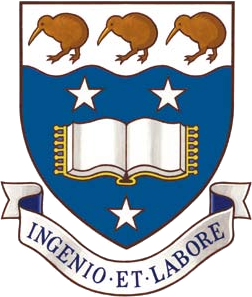
The University of Auckland (UoA) is a public research university based in Auckland, New Zealand. It is the largest, most comprehensive and highest-ranked university in New Zealand and consistently places among the top 100 universities in the QS World University Rankings. The institution was established in 1883 as a constituent college of the University of New Zealand. Originally it was housed in a disused courthouse. Today, the University of Auckland is New Zealand's largest university by enrolment, hosting about 40,000 students on five Auckland campuses. The City Campus, in the Auckland CBD, has the bulk of the students and faculties. There are eight faculties, including a law school, as well as three associated research institutes.
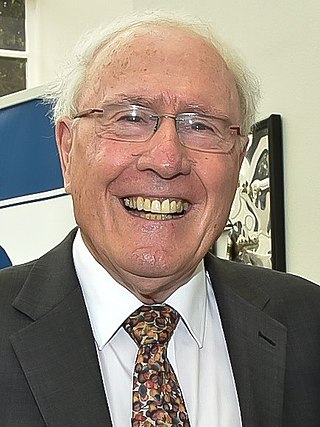
Sir Geoffrey Winston Russell Palmer is a New Zealand lawyer, legal academic, and former politician, who was a member of Parliament from 1979 to 1990. He served as the 33rd prime minister of New Zealand for a little over a year, from August 1989 until September 1990, leading the Fourth Labour Government. As minister of justice from 1984 to 1989, Palmer was responsible for considerable reforms of the country's legal and constitutional framework, such as the creation of the Constitution Act 1986, New Zealand Bill of Rights, Imperial Laws Application Act, and the State Sector Act. He served as president of the New Zealand Law Commission, from 2005 to 2010.

The Royal Society Te Apārangi is an independent, statutory not-for-profit body in New Zealand providing funding and policy advice in the fields of sciences and the humanities.

The Ministry of Research, Science and Technology was a government agency within the New Zealand government.
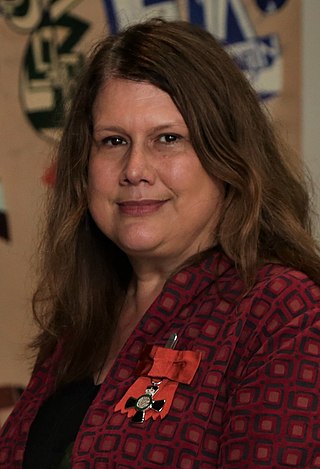
Paula Jane Kiri Morris is a New Zealand novelist, short-story writer editor and literary academic. She is an associate professor at the University of Auckland and founder of the Academy of New Zealand Literature.
Alastair Gibson Smith was a New Zealand academic in the field of library and information science. He retired in 2014 after spending most of his career at Victoria University of Wellington.
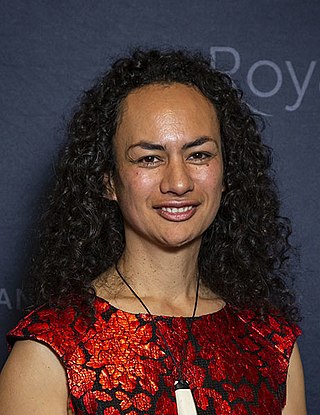
Ocean Ripeka Mercier is a New Zealand academic specialising in physics and Māori science.

Rebecca Katherine Priestley is a New Zealand academic, science historian, and writer. She is Professor in Science in Society at Victoria University of Wellington.

Wendy Alison Nelson is a New Zealand marine scientist and world expert in phycology. She is New Zealand's leading authority on seaweeds. Nelson is particularly interested in the biosystematics of seaweeds/macroalgae of New Zealand, with research on floristics, evolution and phylogeny, as well as ecology, and life history studies of marine algae. Recently she has worked on the systematics and biology of red algae including coralline algae, distribution and diversity of seaweeds in harbours and soft sediment habitats, and seaweeds of the Ross Sea and Balleny Islands.
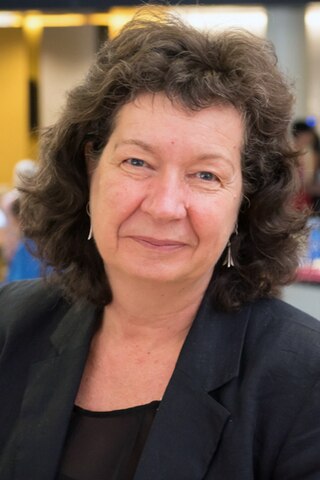
Wendy Larner is a New Zealand social scientist who has focussed on the interdisciplinary areas of globalisation, governance and gender. She is currently Provost at Victoria University, Wellington, New Zealand. From the 1st of September 2023, she will be Vice-Chancellor and President of Cardiff University.
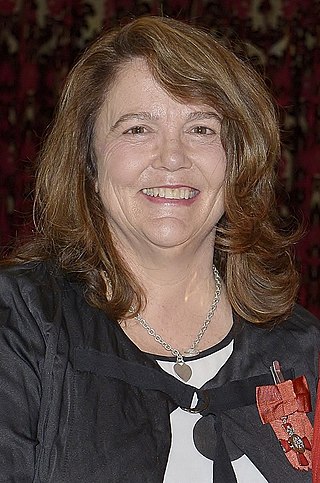
Elisabeth McDonald is a New Zealand feminist law academic. She is currently full professor at the University of Canterbury.

Karen Alison Smith is a New Zealand management academic. She is a full professor at the Victoria University of Wellington.
Open access in New Zealand consists of policies and norms affecting making research outputs, data, and education materials openly available. This is influenced by tertiary education institutions as well as national government and changing international norms. The New Zealand Government has applied open access principles to its own work, adopting the New Zealand Government Open Access Licensing Framework (NZGOAL). It has not mandated that these apply to schools or the tertiary sector or to research funding agencies. Some tertiary education institutions have developed their own open access guidelines or policies but neither of the two major research funding agencies in New Zealand—the Marsden Fund and the Health Research Council—have done so, unlike Australia, Canada, Europe or the United States.

Margaret Mary Hyland is a Canadian-born chemist based in New Zealand whose research focuses on aluminium technology, and the chemistry and engineering of material surfaces. She moved to New Zealand in 1989 and after holding many senior academic leadership roles supporting and developing research at the faculty, university and national level became recognised as an authority on the generation and capture of fluoride emissions from aluminium smelters and for coordinating the team that produced the 'Fluoride Emissions Management Guide' for the aluminium industry. This achievement was acknowledged when she became the first woman to win the Pickering Medal. In 2017, Hyland was seconded to the Ministry of Business, Innovation and Employment in the role of Chief Scientist and has held positions in a variety of other groups supporting the physical sciences and engineering. Since 2018 she has been Vice-Provost, (Research) at Victoria University of Wellington, New Zealand.

Shaun Cameron Hendy is a New Zealand physicist. He is the chief scientist at climate innovation company Toha. He was previously a professor at the University of Auckland and was the first director of Te Pūnaha Matatini, a centre of research excellence in complex systems and data analytics. During the COVID-19 pandemic in New Zealand, he led a team of scientists developing mathematical models of the spread of the virus across the country that influenced the government's response to the outbreak.

Ema Maria Bargh is a New Zealand academic, and is Professor of Politics and Māori Studies at Victoria University of Wellington.

The National Science Challenges (NSC) are 11 ten-year collaborative science programmes in New Zealand, established in 2014. They are "cross-disciplinary, mission-led programmes designed to tackle New Zealand’s biggest science-based challenges", and are funded through the Ministry of Business, Innovation and Employment.
References
- 1 2 "Sally Davenport | School of Management | Victoria University of Wellington". www.victoria.ac.nz.
- ↑ Davenport, Sally (1985). N M R Studies of Coal (Doctoral thesis). Open Access Repository Victoria University of Wellington, Victoria University of Wellington. doi: 10.26686/wgtn.16935025 .
- ↑ "Emeritus Investigators » The MacDiarmid Institute". www.macdiarmid.ac.nz. 9 February 2019.
- ↑ "Our Management Team". Science for Technological Innovation.
- ↑ "Sally Davenport MNZM | Te Pūnaha Matatini". www.tepunahamatatini.ac.nz.
- ↑ "Where science benefits business and society | NZBusiness Magazine | The Business Magazine For NZ SME".
- 1 2 "Commissioner receives MNZM medal | Productivity Commission of New Zealand". www.productivity.govt.nz.
- ↑ "Appointment to the New Zealand Productivity Commission - 2014-go2250 - New Zealand Gazette".
- ↑ "New Year Honours 2018: Business, philanthopy, arts and media". The National Business Review. 30 December 2017.